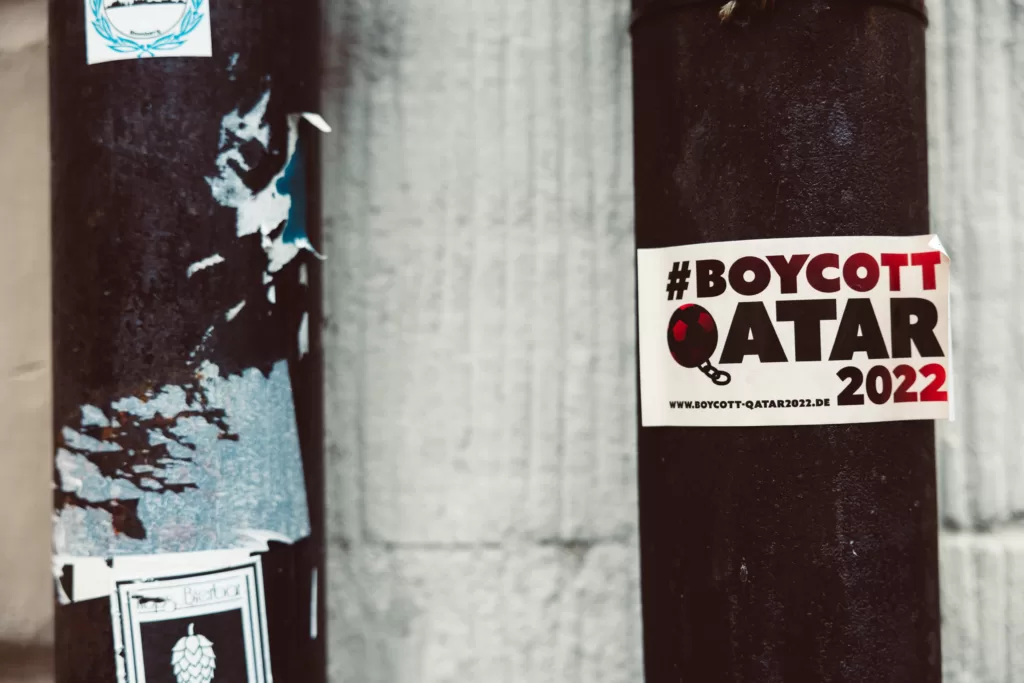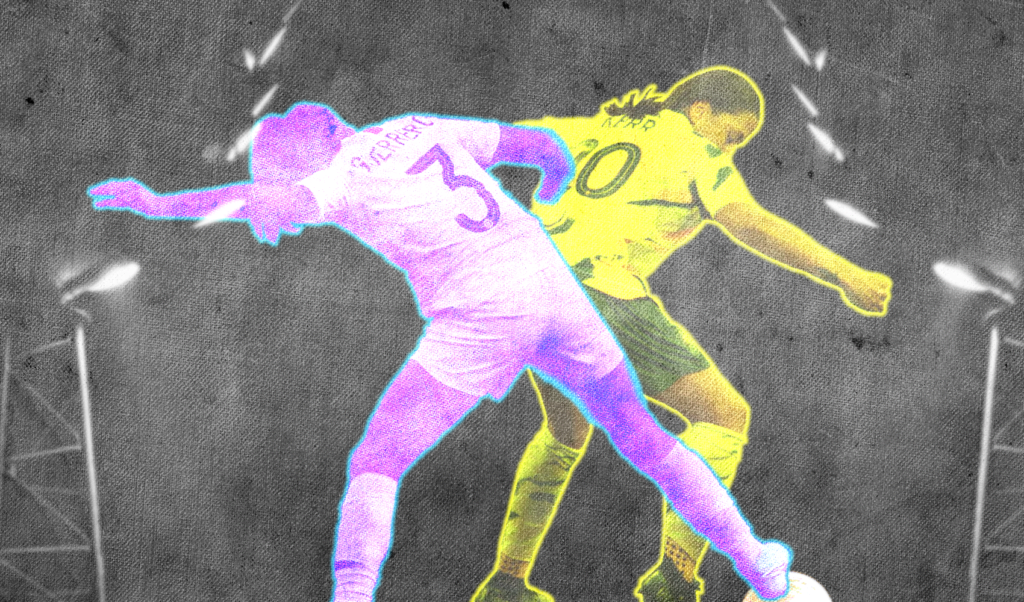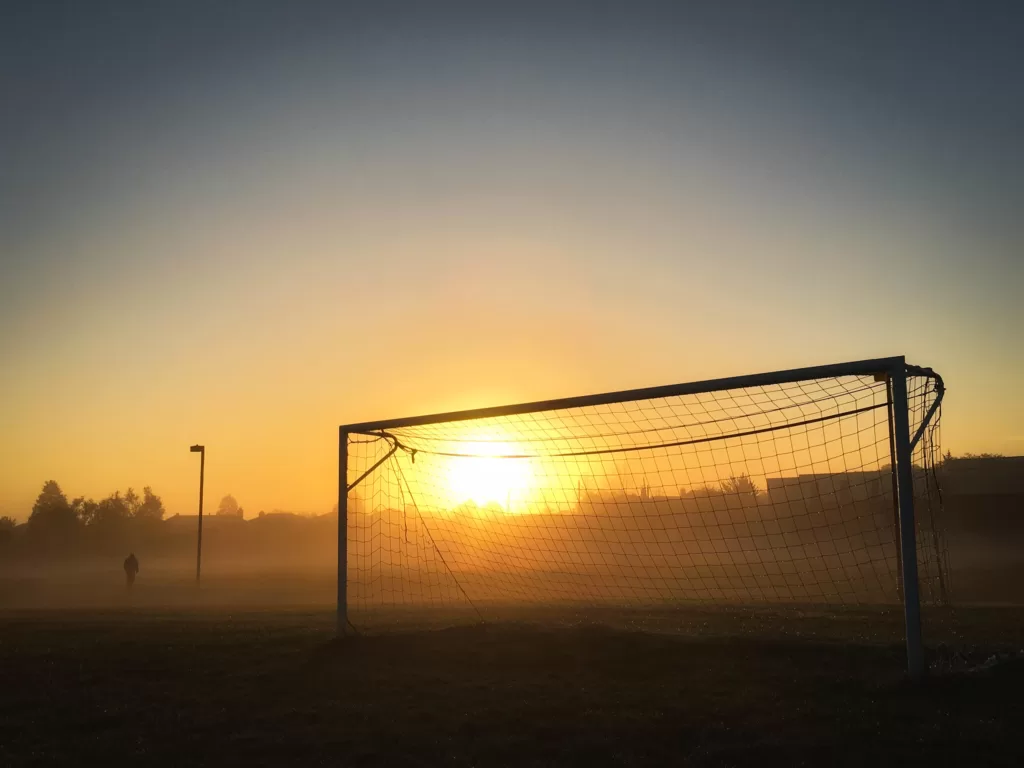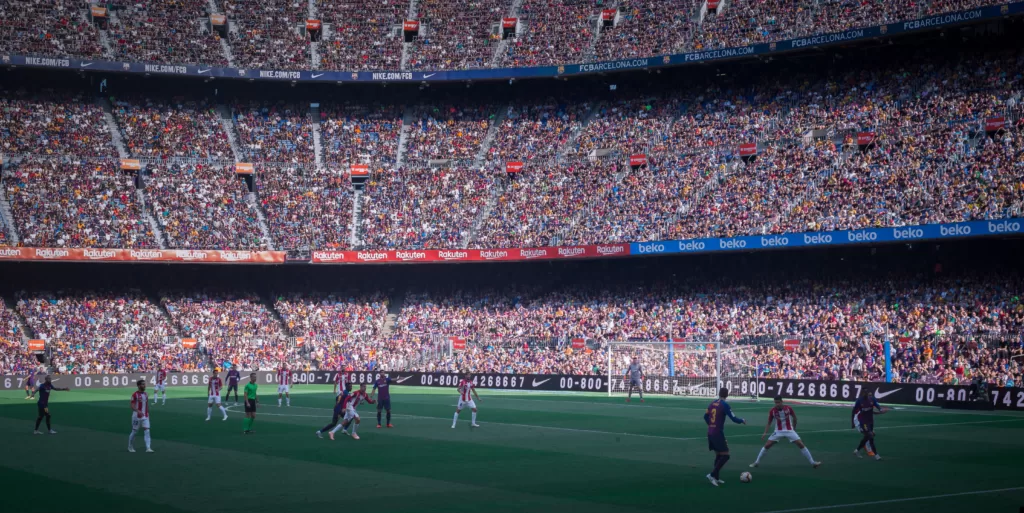Many in the west accuse Gulf nations of sportswashing when they spend big on major events — so, what will they say about World Cup host Australia?
 Qatar’s World Cup was condemned, whereas Australia and New Zealand have avoided sportswashing criticism. : Markus Spiske via Unsplash (https://unsplash.com/photos/0pKXTZSxqW4) Unsplash Licence
Qatar’s World Cup was condemned, whereas Australia and New Zealand have avoided sportswashing criticism. : Markus Spiske via Unsplash (https://unsplash.com/photos/0pKXTZSxqW4) Unsplash Licence
Many in the west accuse Gulf nations of sportswashing when they spend big on major events — so, what will they say about World Cup host Australia?
The FIFA women’s World Cup is breaking new ground in first-time host nations Australia and New Zealand, much like the men’s counterpart did in Qatar last year.
But despite both breaking new ground, there has been a different mood leading up to this tournament — namely, the complete absence of sportswashing accusations.
Sportswashing is the attempt by a country and its institutions to cleanse its image and reputation by investing in and drawing attention to their activities in sport.
The common belief is this will distract audiences, and shift their attitudes and perceptions of it.
But this may be more subjective than objective, more about power relations between an accuser and the accused.
The Qatar World Cup was marked by intense sportswashing scrutiny throughout, indeed the country was repeatedly accused of sportswashing its treatment of migrant workers and LGBTQ+ groups.
The Australian men’s national team released a video denouncing the suffering inflicted upon some sections of the population by the Gulf nation.
Few have raised objections to Australia’s hosting of the World Cup, despite facing human rights issues of its own.
Australia’s high rate of Indigenous incarceration and deaths in custody has drawn criticism at home and abroad. As of October 2022, almost every child in Australia’s Northern Territory youth jails is Indigenous.
Australia has also been condemned for its indefinite detention of asylum seekers and immigrants, which the UN’s torture watchdog labelled “inhumane” in May 2023.
These issues are set against the backdrop of Australia being the only (British) Commonwealth nation that doesn’t formally recognise Indigenous people in its constitution. Although there is a referendum on this topic later in 2023.
In the three years since Australia and New Zealand won the right to host the World Cup, organisers have had a relatively sedate journey.
The biggest scandal, a brief blip in January 2023, arose when FIFA announced that Visit Saudi, Saudi Arabia’s tourism authority, would be a sponsor of the event.
FIFA was widely condemned by rights groups, activists and others for this.
Football’s global governing body was accused of closing its eyes to Saudi Arabia’s human rights record and treatment of women, with many claiming the Gulf nation was attempting to sportswash by associating itself with the tournament.
FIFA and Visit Saudi Arabia eventually stepped back from the deal.
Perhaps the Australian government might face similar accusations as the tournament progresses , though one imagines officials would deny it.
Sportswashing has emerged over the last decade, first used by rights groups and later appropriated by journalists, fans and governments to condemn certain nations. It is not a term that has been universally or retrospectively applied.
Sport delivers image and reputational benefits to countries that enjoy some form of sporting prominence: Britain’s killing and persecution of people across the empire was often sanitised through deployment of, for instance, cricket teams to India.
It can be argued that sportswashing is a form of othering used by people in the Global North — it’s what other people in other countries do, not something we ourselves engage in.
It perhaps explains why Qatar’s World Cup was condemned, whereas Australia and New Zealand have avoided sportswashing criticism, as might the United States, Canada, and Mexico when they host the 2026 men’s World Cup.
But times are changing. There is a major pivot underway from the Global North to the Global South, influencing how ‘we’ see ‘them’.
New centres of power are emerging — in places such as Beijing and Riyadh — that are challenging the Global North’s dominance, specifically in sport.
Some in the Global North may not like what they are encountering; labelling certain acts as sportswashing may help them deal with changes taking place which are being driven by people who don’t look, think or behave like them.
This doesn’t mean that the Chinese, or the Saudis are innocent of sportswashing. But many who view these countries and Qatar through the lens of sportswashing would no doubt be horrified if they viewed Australia in the same way.
As the women’s World Cup draws close to its finale, the hope is that people around the world have spared a thought for Australia’s Indigenous citizens and their treatment.
One also hopes every country that engages in sportswashing will be called out during the competition, no matter who or what they are.
One suspects this won’t be the case, as our political and cultural viewing lens will ultimately determine how we watch the tournament.
Simon Chadwick is Professor of Sport and Geopolitical Economy at Skema Business School in Paris. He has been researching, writing about, and teaching sport for nearly 30 years, having worked with numerous organisations in the sector across the world.
Originally published under Creative Commons by 360info™.











